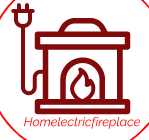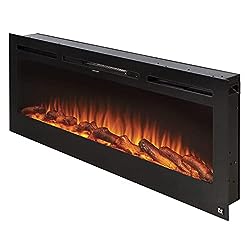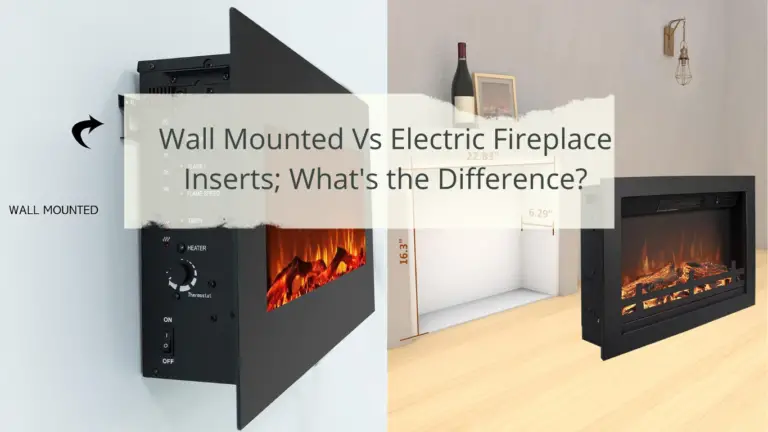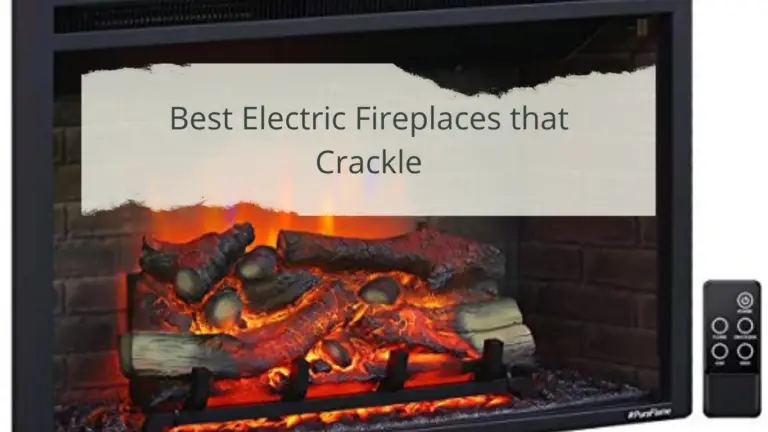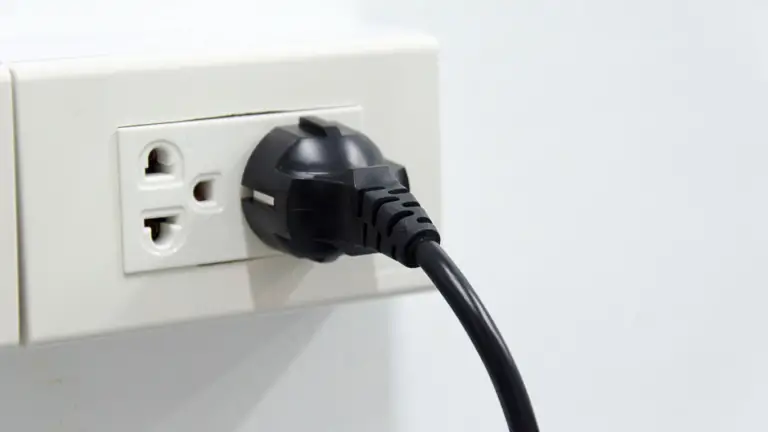Are electric fireplaces noisy?
This post may contain affiliate links which means I may receive a commission for purchases made through links.
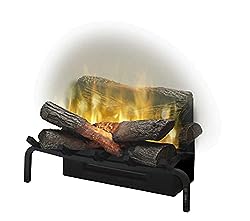
Electric fireplaces use blowers and rotating light components to produce heat and flames. This allows them to produce realistic flame effects, while the inbuilt heater provides supplementary heat. So, unlike traditional wood-burning fireplaces, electric fireplaces have many moving parts. As a result, some people are hesitant to buy electric fireplaces, thinking that they might produce a lot of noise in their homes.
But is that really true? Are electric fireplaces noisy?
Let’s find out! In fact, let’s start from there!
Are electric fireplaces noisy?
Honestly speaking, most electric fireplaces can be noisy due to the components inside the unit. However, there are some models that operate very quietly. For instance, electric fireplaces with infrared heaters are typically quieter, while models with fan-forced heaters can be a bit noisy. Moreover, your electric fireplaces may be producing noise during use due to various problems. However, we’ll talk more about that while looking at some of the factors that might cause an electric fireplace to produce strange noises.
Other factors that can contribute to how noisy an electric fireplace is include, the age of the unit, specific make & model, and whether the fireplace is properly maintained. All in all, the sounds coming from most newly installed electric fireplaces are usually very soft and soothing. And in most cases, these sounds are quieter than the popping and crackling sound of wood-burning fireplaces.
Why most electric fireplaces are noisy
Flame effect
As mentioned earlier, electric fireplaces use a combination of LED lights and rotating mirrors to create the flame effect. To be precise, they use an arrangement of LEDs and a rotisserie-style bar of strategically placed mirrors to project the look of flames into a screen. These mirrors rotate to reflect light, which can generate some noise. However, this noise is not noticeable since the mirrors rotate slowly and the components inside the fireplace are not too loud.
Heater
In addition to the flame effect, electric fireplaces usually have an inbuilt heater to create a more realistic experience and allow the user to feel the warmth while enjoying the flames. These heaters mostly use fan-forced or infrared heating technology.
In essence, an infrared heater uses infrared light from a quartz bulb to produce heat and is usually found in the more expensive electric fireplace models. Best of all, these electric fireplaces create little to no noise during use since there are no moving parts in infrared heaters.
On the other hand, electric fireplaces that use fan-forced heaters can produce a lot of noise. This is because they’re equipped with a blower that forces air over the heating element and blows out the hot air into the room. As a result, these units end up producing a lot of noise during operation, especially when the rotating speed of the blower inside the fan heater is increased.
Other common issues that can make your electric fireplace noisy
-
Fan motor issue
If you notice a rattling or buzzing noise when you turn on your electric fireplace, the blower or fan motor may not be functioning properly. For instance, blockages may be preventing the blower fan from spinning, causing it to produce a rattling noise. To fix this problem, check the fan motor for any blockages or replace it.
-
Loose components
Most electric fireplaces have several moving parts that can loosen over time, resulting in a clunking, clicking, or a rattling noise when you turn on the fireplace. Luckily, you can easily fix this issue by checking for loose bolts or screws and ensuring all components are securely fastened together. However, if the components are damaged or worn out, the best option is to replace them.
-
Wiring issue
Loose wiring connections cause the electric fireplace to produce a humming or buzzing noise when you turn it on. For that, it’s important to check all the wires and ensure they’re securely connected. In addition, you should ensure that there is no exposed wiring and replace any wiring that is in poor condition.
-
Internal blower issue
Some electric fireplace models are equipped with an internal blower fan that circulates air within the unit. This blower creates a loud noise when it’s not operating properly, either due to obstructions or blockages. Therefore, you should always ensure that the blades of the blower are free of debris and obstructions.
-
Faulty components
Faulty or worn-out components could cause an electric fireplace to produce an unusual noise when you turn it on. To fix this problem, check for any signs of wear & tear and replace any malfunctioning components in your electric fireplace.
-
Incorrect installation
Unlike traditional wood-burning fireplaces, installing an electric fireplace incorrectly can cause background clunking or a rattling noise when you turn it on. If possible, contact a professional to inspect if you have installed the fireplace correctly. Moreover, make sure all parts are securely fastened together.
-
Excessive vibration
Putting a freestanding electric fireplace on an uneven surface can cause excessive vibration during use, resulting in a clunking or rattling noise. So, make sure that the area around your fireplace is securely supported, or add insulation and additional padding to minimize vibration.
-
Overheating
An overheating electric fireplace causes the heating element to produce a loud buzzing or humming noise when you turn on the unit. To prevent this, ensure that the air vents are clean and free from obstructions to aid air movement within the unit.
How to make your electric fireplace quieter
If your electric fireplace is too loud, there are various measures you can take to reduce its noise. Some of these measures include;
- Look for an electric fireplace with a variable-speed fan. The main source of noise in an electric fireplace is the fan which circulates air around the unit. Adjusting the speed of the fan to a lower speed will help to reduce the amount of noise produced by the machine during use.
- Clean and maintain your electric fireplace regularly to keep it running smoothly and quietly.
- Check all bolts, screws, and other components to ensure they’re tightened securely.
- Replace faulty or damaged components.
- Clean fan blades to remove dirt buildup and replace bent or damaged fan blades to get rid of unwanted noise.
Conclusion; Are electric fireplaces noisy?
To answer your question, most electric fireplaces are noisy, although it depends on the model. As a result, you’ll discover that some units create a fair bit of noise, while others are nearly silent. However, every electric fireplace should generally run quietly. So, if you’re experiencing a significant amount of persistent noise from your fireplace, you should check the issue as soon as possible. More importantly, you should clean and maintain it regularly and choose an electric fireplace model with a variable-speed fan.
